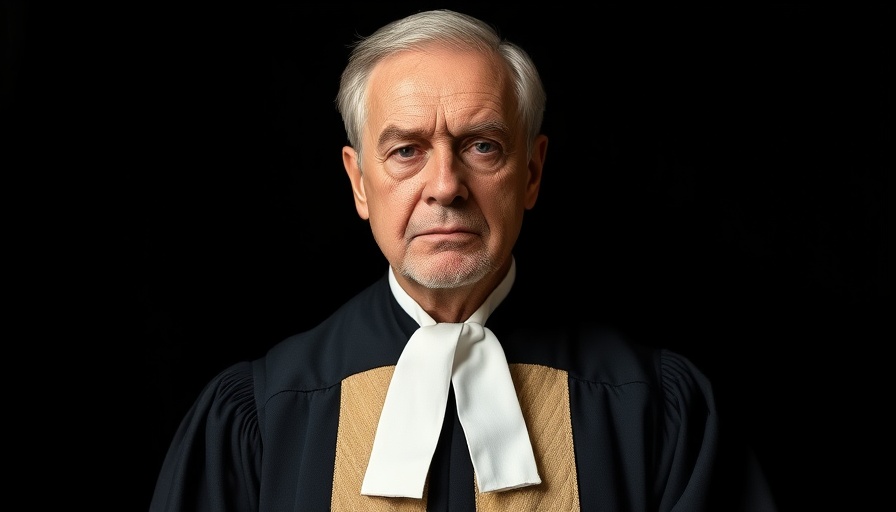
Unpacking the Supreme Court's Examination of LGBTQ+ Literature in Schools
The recent oral arguments led by Justice Clarence Thomas brought to the forefront the heated discussion surrounding the potential bans on LGBTQ+ books in schools. This controversial issue not only ignites debates on parental rights and religious beliefs but also shines a light on the broader implications for public education across the United States.
In Clarence Thomas Grills Lawyer During Oral Arguments On Potential Bans Of LGBTQ+ Books In Schools, the discussion dives into the contentious legal landscape surrounding education and parental rights, exploring key insights that sparked deeper analysis on our end.
The Tension of Parental Control Versus Public Education
In this specific case, Justice Thomas pointedly questioned the freedoms of parents regarding their children's education against the backdrop of federal and state regulations. The ongoing push for bans on LGBTQ+ literature stems from a belief among certain groups that exposure to these topics contradicts their religious teachings or moral beliefs. This tension generates significant legal and social scrutiny about how much control parents should have over curricular content that shapes their children's worldview.
Historical Context: Yodar and Its Implications
In presenting arguments, the lawyer referenced the Yodar case, a pivotal moment in jurisprudence concerning parental rights. This case illustrated the difficult choices faced by parents who, while adhering to their beliefs, must navigate a public education system that exposes their children to ideas they may find contrary to their faith. The Yodar precedent reinforces the argument that parents should have the authority to guide their children's educational content, particularly when it intersects with their deeply held beliefs.
Public Response: The Will of the People and Social Connection
The ongoing debates around LGBTQ+ literature in schools mirror significant societal shifts. Many parents express concerns not merely out of apprehension but from a desire to ensure their children are educated in environments that align with their family values. However, an equally robust counter-narrative calls for the inclusion of LGBTQ+ narratives to foster inclusivity and understanding in diverse educational settings. Understanding social dynamics and responses surrounding this issue is crucial, as schools often serve as microcosms for wider societal attitudes.
Future Trends: Education Policy and LGBTQ+ Literature
With the Supreme Court grappling with this pressing matter, the outcome may very well set precedents that will dictate how schools throughout the U.S. incorporate LGBTQ+ issues into their curricula. This is not merely an issue of educational policy; it delves into the heart of civil rights, challenging the balance between freedom of expression and the imposition of religious beliefs in publicly funded spaces. If the court favors more stringent bans, it could trigger a ripple effect across states, prompting legislation designed to restrict access to diverse narrative forms.
Conceptualizing the Argument: Counterarguments to Censorship
While some advocate for limiting LGBTQ+ materials in schools, others argue that exposure to diverse perspectives is a fundamental component of personal development. Educational experts assert that children benefit from literature that reflects the world’s multiplicity rather than one-dimensional perspectives. Moreover, inclusivity in literature does not dilute the value of religious upbringing but enhances comprehension of social dynamics and tolerance.
Concluding Thoughts: The National Education Policy Landscape
As we witness these debates unfold on Capitol Hill, the implications are vast. This issue not only affects students and parents but also encroaches upon the broader national narratives surrounding censorship, freedom of expression, and the future trajectory of education in America. Parents, educators, and policymakers must engage thoughtfully in these discussions, weighing the significance of public educational benefits against personal beliefs.
The upcoming decisions from the Supreme Court will inevitably alter the landscape of educational policies concerning LGBTQ+ materials. Keeping abreast of these changes is crucial for understanding the evolving rights within the educational system. As citizens, it is paramount that we advocate for a society where all narratives are respected, ensuring a balanced approach in our schools. Engaging in this dialogue can equip us to better navigate the interchange between rights and responsibilities in public education.
 Add Element
Add Element  Add Row
Add Row 



Write A Comment